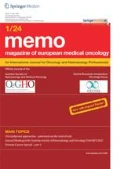A new generation of biomarkers has become available with the discovery of the genetic alterations such as single-base substitutions, insertions, deletions, and translocations that are responsible for the development and progression of virtually all human cancers. However, it is often difficult in clinical practice to obtain sufficient tumor material for genetic analyses. Some tumors such as advanced non-small cell lung cancer are only accessible through biopsies with frequently insufficient tumor material available for genotyping. Moreover, in many patients with advanced or progressing disease it can be challenging or even impossible to acquire tumor tissue samples. In addition, in patients treated with molecular targeted therapy, clinicians frequently search for early evidence of recurrence or mechanisms underlying resistance. In these cases, the analyses of tumor-specific genetic alterations in the serum or plasma of the patients are particularly valuable because they can provide temporal measurements of the total tumor burden as well as identify specific mutations that arise during therapy. Blood samples are more easily and frequently accessible and are therefore employed to detect tumor-specific genetic alterations. This procedure is termed “liquid biopsy” [1].
There are several sources of tumor DNA that can be noninvasively assessed in the blood of cancer patients by liquid biopsy: cell-free circulating DNA (cfDNA) [2], circulating tumor cells (CTCs) [3], and exosomes [4]. cfDNA is composed of small fragments of nucleic acid that are not associated with cells or cell fragments, whereas CTCs represent intact, viable cells that can be purified from blood. Exosomes are cell-derived vesicles that contain RNA, proteins, and metabolites but also DNA fragments which can be used for assessment of tumor-specific genetic aberrations.
The applications of liquid biopsy are very promising and include early detection, assessment of molecular heterogeneity of overall disease, monitoring of tumor dynamics, identification of genetic determinants for targeted therapy, evaluation of early treatment response, monitoring of minimal residual disease, and assessment of evolution of resistance in real time [1].
Although the liquid biopsy approach is very promising, its sensitivity and specificity compared with conventional tumor biopsies have to be evaluated in large, clinically relevant cohorts before widespread use in clinical routine.
The author declares that there are no actual or potential conflicts of interest in relation to this article.
References
Diaz LA Jr, Bardelli A. Liquid biopsies: genotyping circulating tumor DNA. J Clin Oncol. 2014;32:579–86.
Heitzer E. Clinical utility of circulating tumor DNA in human cancers. Memo. 2105;8. DOI 10.1007/s12254-015-0217-5.
Hamilton G. Clinical relevance of circulating tumor cells in cancer patients. Memo. 2015;8. DOI 10.1007/s12254-015-0237-1.
Senfter D, Mader RM. Exosomes as novel biomarkers in anticancer therapy. Memo. 2015;8. DOI 10.1007/s12254-015-0245-1.
Author information
Authors and Affiliations
Corresponding author
Rights and permissions
About this article
Cite this article
Filipits, M. Biomarkers—hope and hype. memo 8, 204 (2015). https://doi.org/10.1007/s12254-015-0235-3
Received:
Accepted:
Published:
Issue Date:
DOI: https://doi.org/10.1007/s12254-015-0235-3

